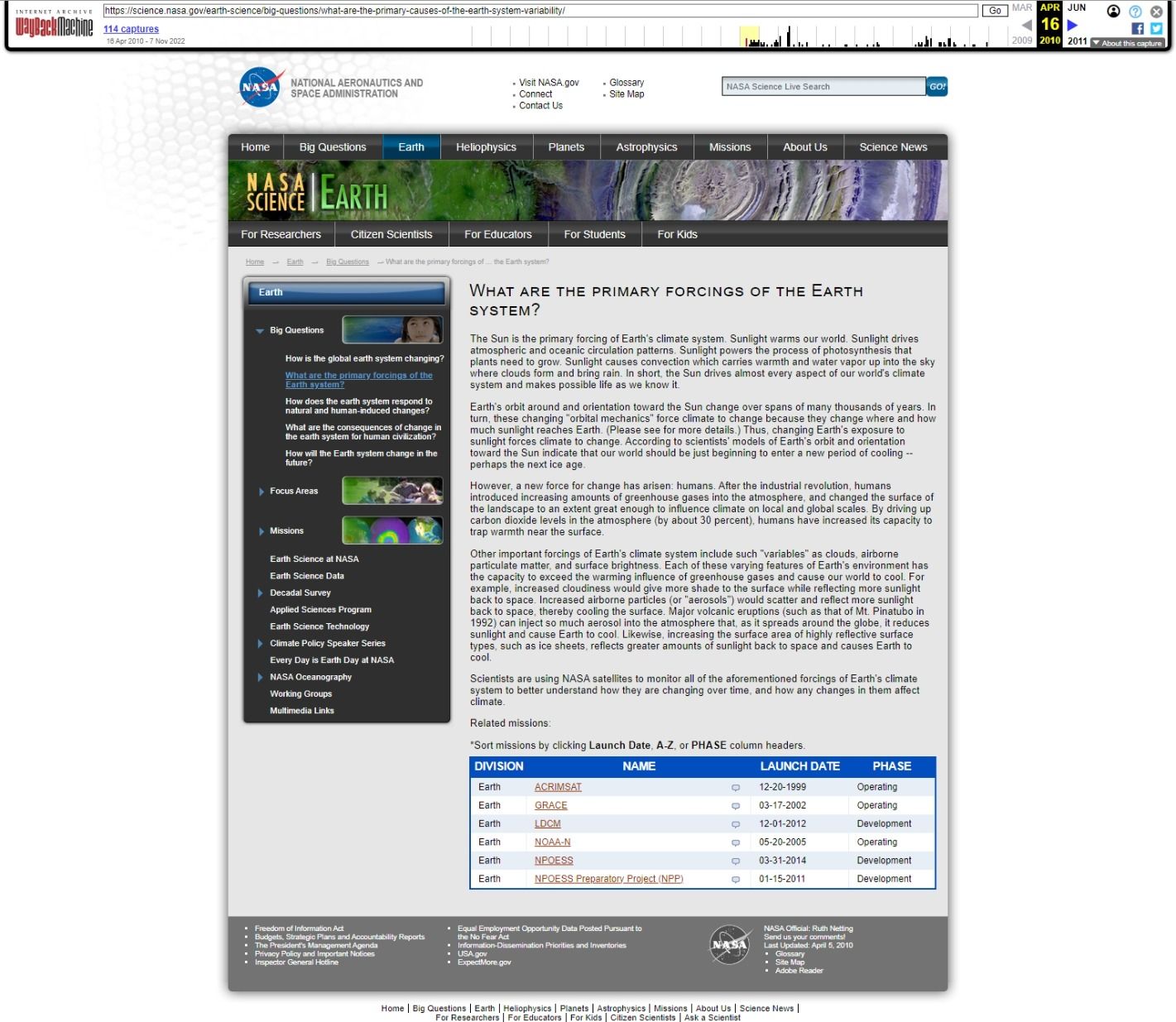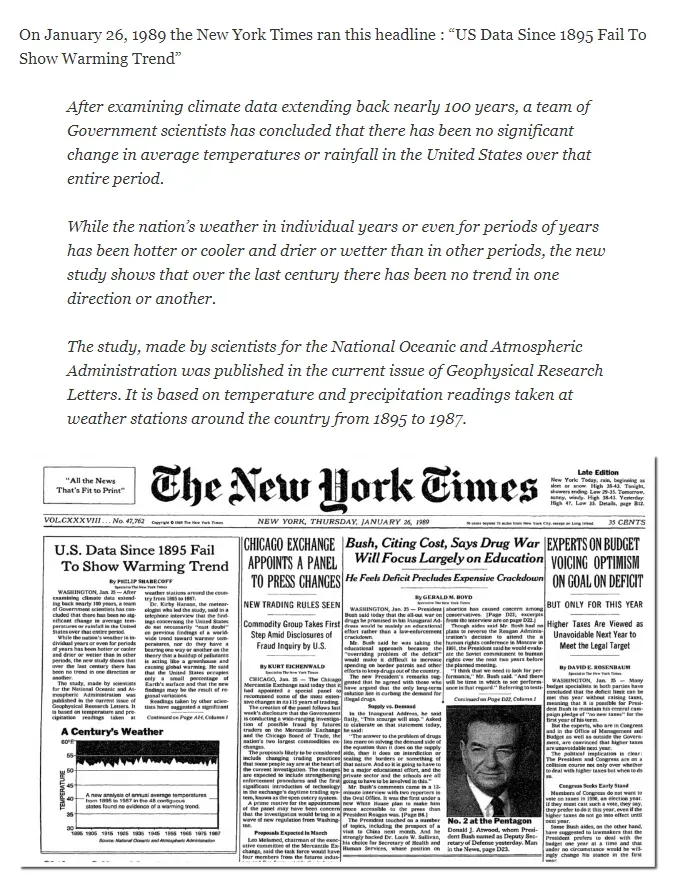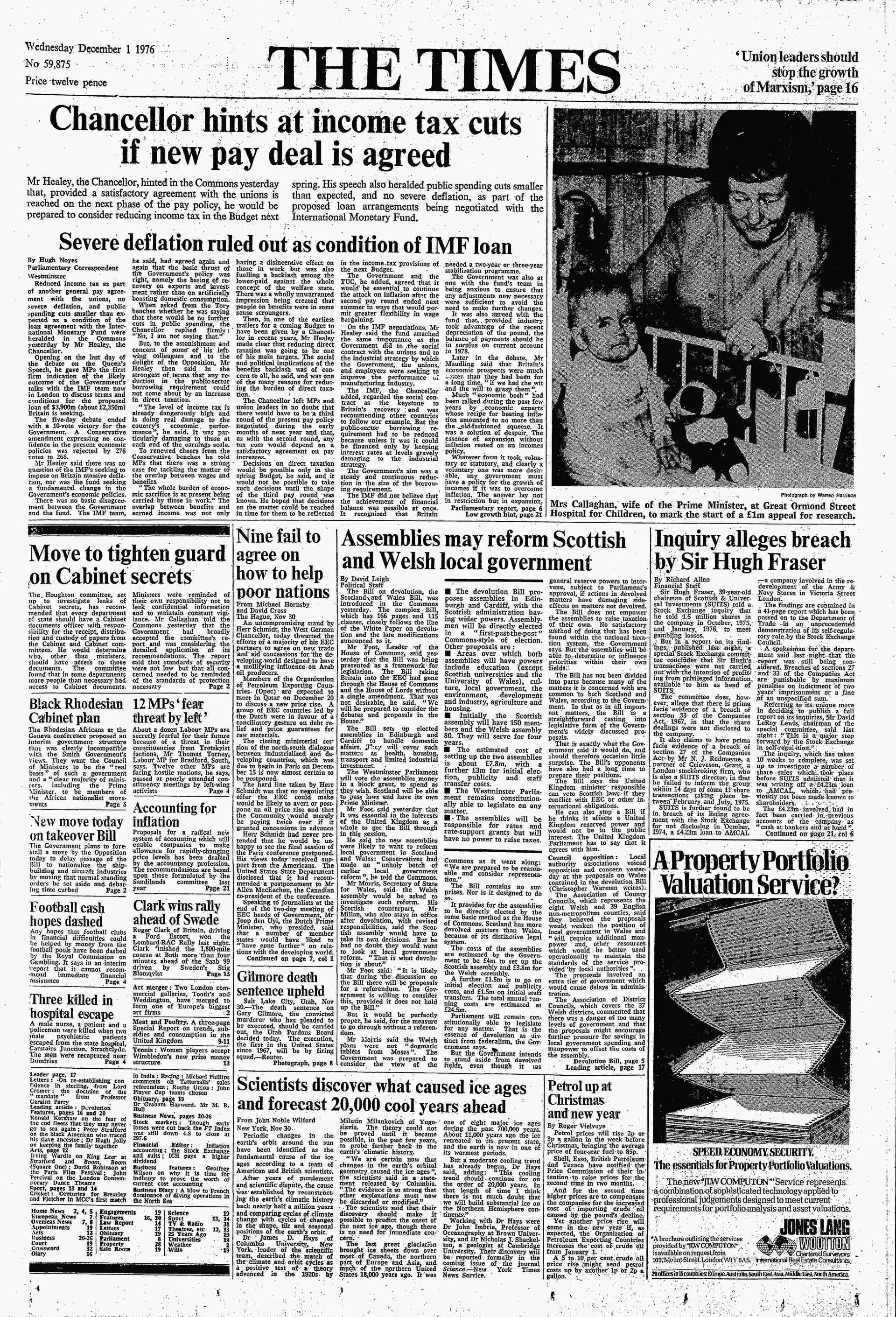Carbon dioxide is innocent - so - Just Stop Net Zero
There is no climate emergency
And now even better - New for 2026 - the expanding realisation that there is no climate emergency.
There has been about a 25% drop in the number of press articles claiming some sort of climate alarm from peak climate scare in 2021.
Reality plus economics have begun to turn the tide of politics and bad science.
So it is good news for most of the world who want their lives to be happier and healthier.
All the major banks and investment firms including Goldman Sachs, Lazard, and JP Morgan now assume a “longer life for hydrocarbon assets”, a growing demand for natural gas as a fuel, and the need for new oil & gas development.
And a study by Danish scientists shows that far from melting, the Antarctic has actually grown over the last 85 years. The Great Barrier Reef is the in the best condition it has ever been; and the polar bears are doing fine.
Net Zero is expensive and not necessary. NASA has already reverted to its earlier statement on climate change "The Sun is the primary forcing of Earth's climate system."
"If the UK and European Union went Net Zero today, it would have no impact on the climate. If you put it into the UN climate model, the world would be about 0.02 degrees cooler by mid-century. We wouldn’t even be able to measure it. Even by the end of the century, it would be less than 0.1 degrees. So there would be no impact on the climate, but the cost over the 21st century would be well over 100 trillion pounds. We would impoverish ourselves for no purpose." Bjorn Lomborg - climate scientist and economist.
Net Zero is not necessary because the carbon dioxide theory of global warming has failed, and failed in the way that Professor Stephen Hawking said:
“Any physical theory is always provisional, in the sense that it is only a hypothesis: you can never prove it. No matter how many times the results of experiments agree with some theory, you can never be sure that the next time the result will not contradict the theory. On the other hand you can disprove a theory by finding even a single observation that disagrees with the predictions of the theory.”
There have been many failed predictions of climate doom and all of them have failed to occur.
Hence, there is no climate emergency.
Just Stop Net Zero
The Economics of Net Zero
The world will not end whilst you are waiting - so read the useful stuff here
Goldman Sachs: "$3.8 Trillion of Investment in Renewables Moved Fossil Fuels from 82% to 81% of Overall Energy Consumption’ in 10 Years."
"Our estimates of the annual spending on physical assets for a net-zero
transition exceed to a meaningful degree the $3 trillion–$4.5 trillion total spending estimates
that previous analyses have produced."
The report demonstrates the economic shifts that would need to take place.
It simply isn't worth it.
What climate emergency ?
The text below is from the World Climate Declaration - over 1,000 scientists signed up to it:
Climate science should be less political and climate policies should be more scientific. Scientists should openly address the uncertainties and exaggerations in their predictions of global warming, while politicians should count the real costs as well as the imagined benefits of their policy measures.
Natural as well as anthropogenic factors cause warming
The geological archive reveals that Earth’s climate has varied as long as the planet has existed, with natural cold and warm phases. The Little Ice Age ended as recently as 1850. Therefore, it is no surprise that we now are experiencing a period of warming.
Warming is far slower than predicted
The world has warmed significantly less than predicted by IPCC on the basis of modeled anthropogenic forcing. The gap between the real world and the modeled world tells us that we are far from understanding climate change.
Climate policy relies on inadequate models
Climate models have many shortcomings and are not remotely plausible as global policy tools. They blow up the effect of greenhouse gases such as CO2. In addition, they ignore the fact that enriching the atmosphere with CO2 is beneficial.
CO2 is plant food, the basis of all life on Earth
CO2 is not a pollutant. It is essential to all life on Earth. Photosynthesis is a blessing. More CO2 is beneficial for nature, greening the Earth: additional CO2 in the air has promoted growth in global plant biomass. It is also good for agriculture, increasing the yields of crops worldwide.
Global warming has not increased natural disasters
There is no statistical evidence that global warming is intensifying hurricanes, floods, droughts and suchlike natural disasters, or making them more frequent. However, there is ample evidence that CO2-mitigation measures are as damaging as they are costly.
Climate policy must respect scientific and economic realities
There is no climate emergency.
Therefore, there is no cause for panic and alarm. You should oppose the harmful and unrealistic net-zero CO2 policy proposed for 2050. If better approaches emerge, and they certainly will, we have ample time to reflect and re-adapt. The aim of global policy should be ‘prosperity for all’ by providing reliable and affordable energy at all times. In a prosperous society men and women are well educated, birth rates are low and people care about their environment.
The JP Morgan energy review 2022 shows you why the economics of renewable energy just won't change anything other than to make you poorer and keep many developing countries in poverty. It also shows why electric vehicles (EVs) - will change nothing.
Gavin Schmidt and his team of climate modellers at NASA examined all the models used by the UN IPCC and found they were all running too warm and were causing bad policy and bad economic decisions. Remove a few of the more wayward models from the overall calculation and you find there is no climate emergency. Published in Nature magazine in May 2022.
Thomas Kuhn's classic on explaining how science actually advances like fashion and it takes a generation or two for old bad ideas to be dropped. Too many careers in schools and universities depend of maintaining the disproved carbon dioxide theory of global warming because the cost of admitting you were wrong would end in tears.
Karl Popper's classic on explaining that science advances by proposing and then testing hypotheses by making predictions. If the predictions don't happen then it is not a good hypothesis. With 50 years of failed climate doom predictions it is time the carbon dioxide theory of global warming was consigned to the scientific dustbin.
The much repeated canard that 97% of scientists said global warming was all caused by human carbon dioxide emissions. In fact this was a student stunt and hid the fact that most meteorologists didn't believe it. The power of popular fable.
22% of electricity in The Philippines comes from geothermal sources - but this exciting test drilling in Iceland showed that almost unlimited carbon dioxide emission free power could be generated by drilling down to molten magma at about 1000 degrees C. There are some 40 countries in the World where geothermal power is economically viable.
Yes - the 2000 or so people who flew by jet to tell you to not fly by jet. Possibly one of the longest lists of hypocrites ever published.
The Thames Barrier shows that the Sea Level is not rising at an alarming pace
When it was designed the engineers built in an assumption of the sea level rising by 8mm a year - but after 40 years the actual sea level only rose 3mm a year - so the life of the Thames Barrier has been extended to beyond 2070. 100 years at 3mm a year is 30 cm = about 12 inches = not even up to your knees. Plenty of time to move if you are worried.


